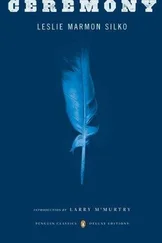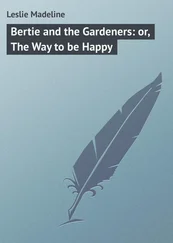One Indian had to ride in the other canoe to make way for the injured leg. The little monkey rode on the canoe’s bow, watching the riverbanks ahead. The water revived Edward, and he was able to raise himself up in the canoe with the injured leg straight out ahead of him. The mestizo brothers praised the little monkey; if it had been them alone, they would not have turned back upriver again. This was summer festival week and they were in a hurry to get back for the revelry that night.
The other brother passed Edward the bottle of rum that went back and forth between the canoes; the burning mouthful brought tears to his eyes when he swallowed it. The mestizo brothers and the Indians let out whoops of celebration. Edward was surprised to feel his spirits lift despite the pain. His rescuers were elated to find him alive and broke out another bottle of rum to celebrate. They composed a triumphant song they sang at the tops of their voices.
“We saved the white man,” they sang; “we saved him with the help of the good luck monkey! Otherwise, the white would have died; yes, he would have died.”
His friends had departed that very morning at daybreak on the Louis XV downriver to Pará, the mestizo brothers told him. Edward was not prepared for such news and his face must have registered the shock, because the mestizo brothers became oddly apologetic about the behavior of his colleagues and tried to explain away their abandonment of him: they had to make the departure of a steamer for Havana and they thought he was dead. Yes, they were sorry but they could not wait. They had to go because the authorities were on their way to investigate reports of an English smuggler. With each bit of news, the pain in the leg stabbed harder and he was bathed in sweat. He vomited the river water, then lay back on the bottom of the canoe, shaken by the dry heaves.
When they reached Portal, the Indians carefully lifted him from the canoe and carried him to a hammock hanging on the deck of the Louis XIV . The mestizo brothers splinted the leg with parts of a broken chair wrapped with old silk stockings. They poured more kerosene over the leg and pronounced the wound clean, but they warned the leg might need a long time to mend. The brothers attended to all of his needs. They sponge-bathed him while he lay in the hammock, and found his valise with clean clothing and his own kit with tincture of Merthiolate, bandages and plasters, and, of course, tablets of aspirin and belladonna. They took turns feeding him bowls of hot fish soup and tea with odd leaves floating in the cup; for pain, they explained; the tea would help him sleep.
He closed his eyes but was still aware of the sounds and noise from the barges and riverboats nearby; he heard voices in the cantina and he heard the music box begin to play a waltz. He imagined his furry savior intently turning the crank as the Negress, in a red dress, danced with the elder of the mestizo brothers. Later he woke but could not tell if it was evening or early morning due to the lanterns shining along the decks of the boats and barges. He heard the sounds of hammering but they were not close by and he could see no one moving on the barges with the cantina and dance hall. The effort of lifting and turning his head toward the river left him tired and he lay back and closed his eyes again.
He slept heavily for hours and later recalled his physicians came twice to administer their special hot tea. But when he woke he immediately sensed something was different; the little monkey was tied to his valise under the hammock and the Louis XIII , which had been tied next to them, suddenly was gone. He pulled himself up for a better look and was shocked to see the barges and other river craft that formed the floating town were gone. Only the Louis XIV remained.
Edward saw and heard no one on board except for his rescuer, the monkey, who seemed happy to see him awaken. While he slept the entire town floated off to a new location, free of raids and tax authorities. The long sleep was a healing agent, just as the mestizo brothers said. Edward felt much better and was able to maneuver himself and the injured leg out of the hammock to reach the pair of crutches cleverly carved from branches of mahogany.
He untied the monkey and the little creature danced gaily about, chattering with what Edward imagined was gratitude. Together they sat on the shady side of the boat to share the cache of canned goods and fresh mangoes and guavas left by the mestizo brothers.
At night he allowed himself the luxury of a pot of hot tea, though the little kerosene cookstove was low on fuel. The monkey quickly learned to bring him a mango, then to toss the fruit peelings and pit into the river when he was finished. The floating town of Portal was gone. For six days he and the little monkey were the only occupants of the Louis XIV; the leg was much improved so long as he did not move about too much. There was ample water and food, but Edward agonized over the unknown fate of his remaining two boxes of orchid specimens. His “friends,” Eliot and Vicks, had taken all of his boxes along with them, the mestizo brothers assured him, except for the two boxes they overlooked. Edward was relieved to see the boxes contained Laelia cinnabarina specimens he collected the day before the accident.
The limb seemed to be healing safely as the mestizo brothers promised, although the healing required he sleep a great deal. He no longer bothered to tie the monkey, who curled up under the hammock while he slept. As each day passed he thought less and less about the past, even the immediate past, and focused only on this place and this time. When a rainstorm and wind threatened to flood the boxes of orchid specimens, he was able to balance himself on the crutches well enough to maneuver the boxes to safety without a thought of the future of the specimens or himself. Although he knew it was only six days, he felt as if he had been alone with the monkey for six months. He felt as if years had passed since his fateful introduction to Vicks and Eliot in the offices of Lowe & Company. Now when he recalled the preceding weeks of fieldwork with Eliot and even Vicks, he felt as if another person, not himself, had lived those weeks.
As he began to feel stronger, Edward passed the time reading; most of the books he brought were botanical texts about orchids and bromeliads — nothing he wanted to read now. He brought a volume of Shakespeare’s sonnets, but oddly the sonnets stirred up anxious feelings that left his heart pounding, so he set it aside for a delightful book about ornamental ponds.
On the eighth day, the monkey woke him with excited chattering, and he heard the chug-chug of a boat coming upriver. He expected to see the Louis XV round the bend in the river, but it was a Brazilian government boat with uniformed officers at the bow. Edward greeted them warmly and asked which of them was the doctor. They looked blankly at one another and then at the injured limb. They knew nothing about his companions or the accident; they were acting on information received weeks before. The officer was disappointed Edward was not the reported Englishman.
Once Edward identified himself, the senior officer wasted no time; he informed Edward he was under arrest for suspicion of smuggling forbidden plant material. They were quite polite and did not use the handcuffs; they helped him out of the hammock and the three of them assisted him on board their boat. They loaded his boxes and luggage into the police boat. He was so stunned by his arrest and the dizziness and nausea that followed his short trek to their boat, he failed to notice the error made by the police. Just as they reached Pará, Edward noticed the Frenchman’s little monkey tied to a handle on his big steamer trunk. The officers permitted Edward to bring the monkey along with him to the jail, and later the monkey accompanied him and the senior officer to the telegraph office across the street from the jail. Lowe & Company responded promptly with a generous advance to cover his medical expenses and all fines and legal fees. Ever discreet, Mr. Albert’s cablegram made no mention at all of Vicks or that scoundrel Eliot.
Читать дальше












